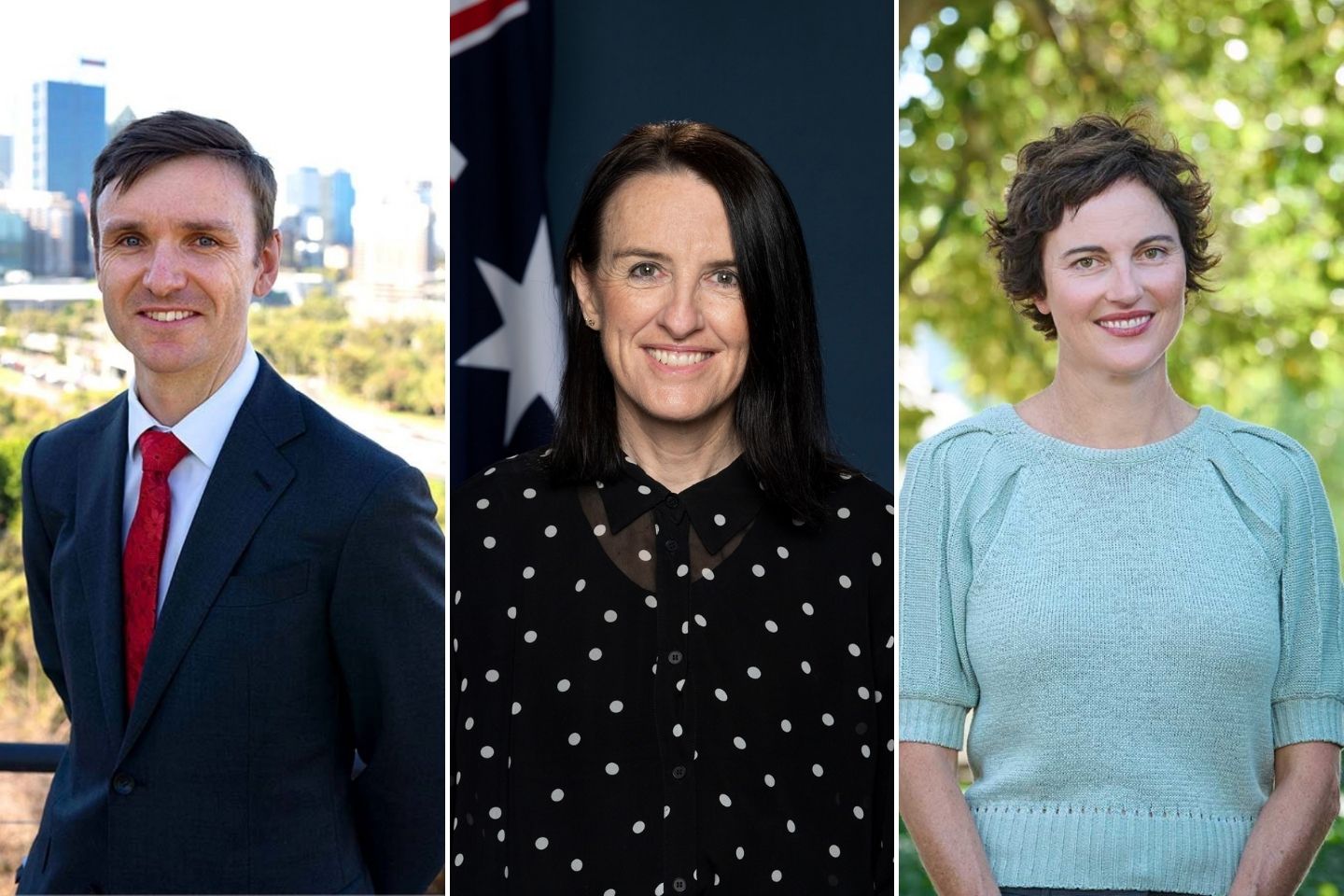Liberal, Labor and independent candidates fight for the seat of Curtin in a live Business News debate.


It's the federal seat that should be - and still could be - safe as houses.
Curtin, ironically named after former Labor Prime Minister John Curtin in 1949, has been thrust into the election campaign maelstrom because tongues are wagging that the bluest of blue seats might turn teal.
An independent, with the blue blood of the Chaney family coursing through her veins, has mounted a challenge for the safest Liberal seat in the state and she appears to have gained plenty of traction.
As a Climate 200 candidate, and one of the so-called teal coloured independents trying to knock-off Morrison government ministers and MPs across the country, Kate Chaney has certainly captured the imagination of many who see themselves as socialy progressive Liberals.
Today, she joined Liberal incumbent Celia Hammond and Labor's Curtin candidate Yannick Spencer for a live-streamed debate hosted by the Business News events and marketing team.
Climate change, integrity, wages, cost of living and transparency in political donations were all central to the debate.
One of the more frank comments came from Ms Hammond when asked how much discussion she has from voters in Curtin about action on climate.
"I will say, and this is critical of my party and my government, I don't think we've actually sold what we've been doing on climate change very well," she said.
"I've got great faith and confidence in our scientists, in the investment we're putting into this, that we're going to meet and beat net zero well before 2050. $22 billion will be spent before 2030, investing in renewable technologies.
"I get cranky with my own party for not selling all we're doing."
Ms Chaney said that the absolute minimum emissions target should be net zero by 2050, but if she does win Curtin and is in a postion to negotiate with either party about forming a minority government, then a 50 per cent reduction by 2030 would be one of her requests.
She would call for the politics to be taken out of the debate by establishing a climate change commission.

The Labor candidate believes "we can do much more to cut emissions than we are now".
"Business has been crying out for certainty on energy policy, on decarbonisation, and they have not been getting it from this government," he said.
Ms Chaney has again refused to answer the question about which party she would back if put in the position of negotiating.
"Like any negotiation, you don't start by announcing the result of it," she said.
"I will negotiate with both sides on what the issues that Curtin are telling me are important - integrity and climate issues. I think either party could come to a sensible position on those issues. It's an opportunity for Scott Morrison to listen to his party's core."
On political donation transparency, all agreed that parties and candidates should have no problem declaring the donations in real time through a website and that there's no need for legislative changes to make that happen.
Ms Hammond said she could also understand why some donors might prefer privacy because of where they work or for fear of retribution.
On the question of a re-elected Morrison government revisiting its stalled Religious Discrimination Bill, Ms Hammond agreed the protection of transgender children should be separated out from any legislation.
Ms Chaney went further than that, saying if she has to negotiate with the coalition after the May 21 election, she would demand the Bill be dropped altogether.
"I would say take it off the table," she said. "I think it's appalling that trans-kids are being used to score political points - a very vulnerable group of people," she said.
Mr Spencer agreed.












